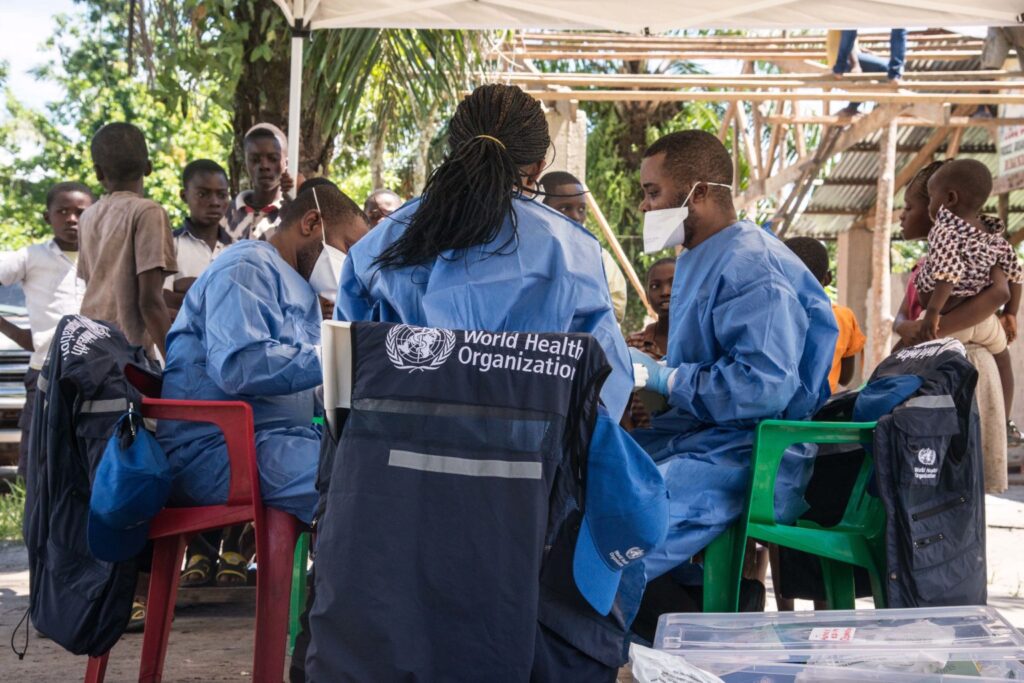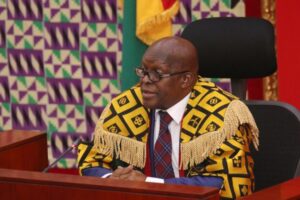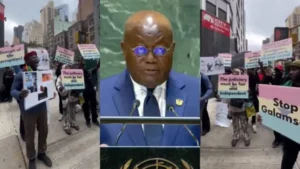The Democratic Republic of Congo has declared the latest cycle of Ebola outbreak over. Â
Congolese Minister of Public Health Dr Jean-Jacques Mbungani on Monday said the outbreak in Equateur Province in northwest DRC had been tamed.
This latest outbreak announced on April 23, 2022 in Mbandaka, the largest city of Equateur, was the 14th in the history of Congo.
“After 42 days of reinforced surveillance without any new confirmed case, from July 3, 2022, and in accordance with the WHO protocol, I declare the end of the 14th Ebola  epidemic in the province of Equateur,” Dr Mbungani said.
 According to the World Health Organisation, it takes 42 days without a new infection for an Ebola epidemic to be considered over.
For Equateur Province, this was the third outbreak since 2018. Five people were infected and died from the haemorrhagic fever virus, officials said.
“We regret the deaths of all confirmed cases at a time when the country has not only the technical expertise but also the vaccines and medicines against Ebola,” the Health Minister said.
Dr Matshidiso Moeti, Regional Director of WHO Africa, praised Congolese health personnel for containing the virus.
“Thanks to the robust response by Ministry of Health DRC, this outbreak has been brought to an end swiftly with limited transmission of the virus. Crucial lessons have been learnt from past outbreaks and they have been applied to devise and deploy an even more effective Ebola response,” said Dr Matshidiso. “The response to this outbreak shows that by strengthening preparedness, surveillance and early case detection, we can stay ahead of the game.”
Dr Mbungani said only two of the three health zones in the town of Mbandaka, out of the 18 in the province, were affected.
The Ministry of Health and WHO put in place rapid response measures, including screening, follow-up of people who had been in contact with those infected, prevention, infection control, vaccination and extensive community sensitisation. This prevented the disease from spreading widely.
In the previous outbreak in Equateur Province, which lasted from June to November 2020, 55 of 130 confirmed patients died.
See: DRC starts Ebola vaccinations
Unlike previous outbreaks, where people fiercely resisted vaccination, the 14th Ebola outbreak did not see much opposition, as 2,104 people were vaccinated, including 302 contacts and 1,307 health workers and other frontline workers.
The first Ebola virus in Congo was discovered in 1976 in the northwest, and there have been 14 outbreaks, including six since 2018. The deadliest one broke out in North Kivu between 2018 and 2020, with over 2,200 deaths.
The Ebola virus is transmitted through direct contact with blood and body fluids (urine, stool, saliva, vomit, breast milk, sweat,) and objects infected by a person with Ebola. The virus is also transmitted through contact with sick or dead wildlife.
The symptoms vary, but sudden onset of fever, severe weakness, muscle pain, headache and throat irritation are common at the beginning of the infection. Vomiting and diarrhoea, skin rash, kidney and liver dysfunction and, in some cases, internal and external bleeding are experienced.







